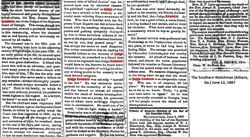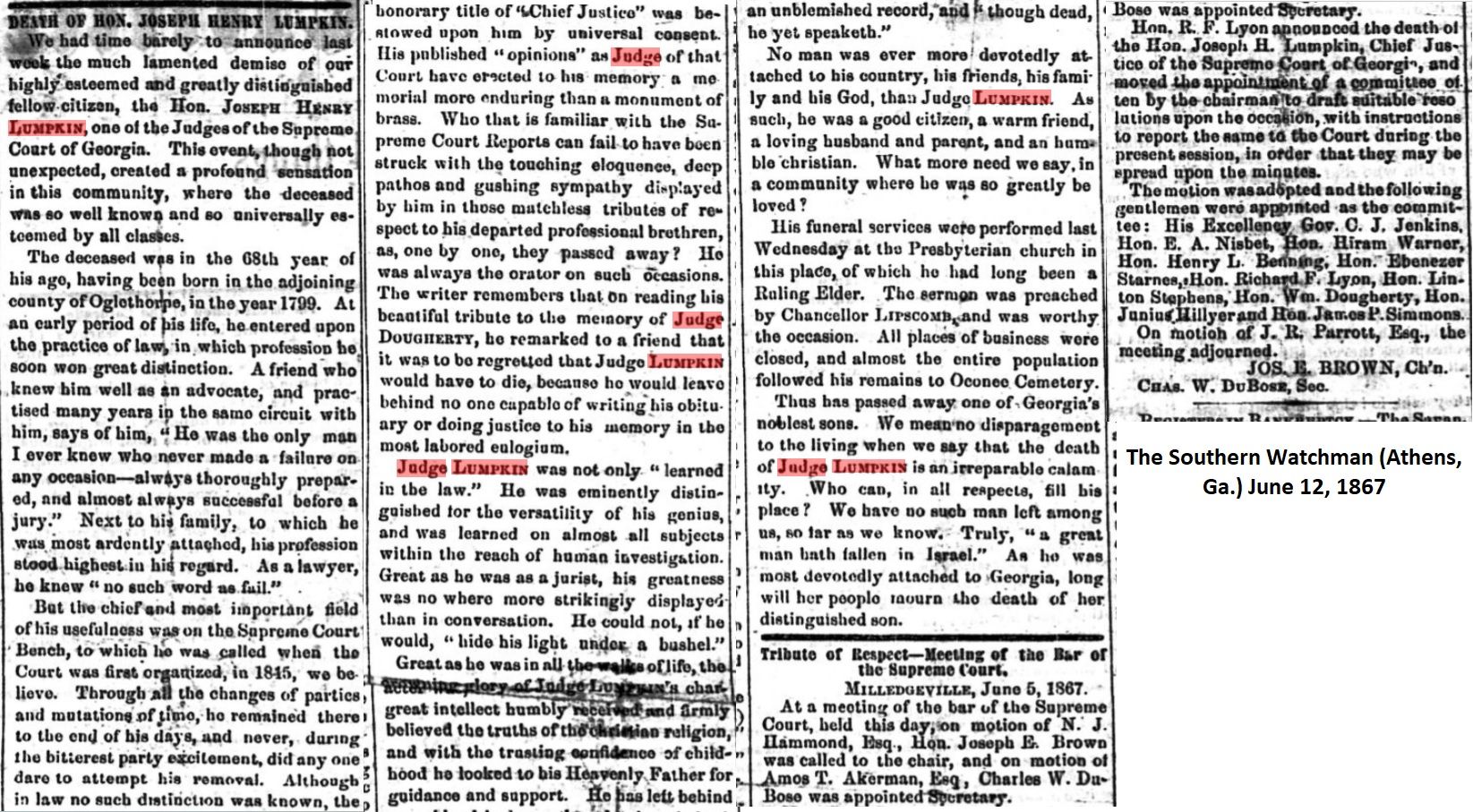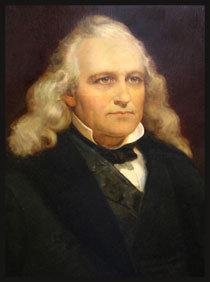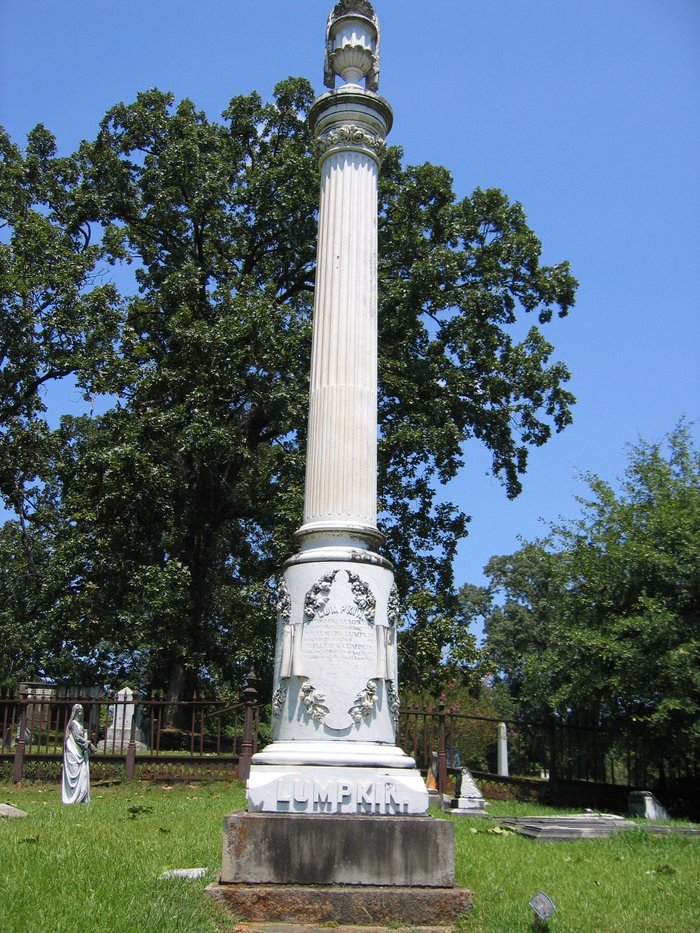After the creation of the Supreme Court of Georgia in 1845, Lumpkin was elected as one of three initial justices to preside over that court and was its first chief justice. He served on the court until his death. Lumpkin was offered the faculty chair of rhetoric and oratory at UGA in 1846, but he declined it. He did the same when offered the chancellorship of UGA in 1860. Even a presidential appointment to a federal seat on the Court of Claims was turned down by Lumpkin so that he could remain on the state supreme court. He co-founded the UGA law school. The school was previously referred to as the Lumpkin School of Law; however, Lumpkin's name has since been removed from the official name of the school. Lumpkin taught at the law school until the university shut down during the American Civil War. He also served as a trustee for the school for many years.
His writings and policies suggest a mixing of religion and politics: "In the early 1820s Lumpkin underwent an evangelical conversion that profoundly affected his life. He took an active part in the temperance movement on both the national and state levels. He also believed that slavery was sanctioned by the Bible and often cited religious arguments to support continuation of that institution." However, early in his career he had expressed opposition to slavery.
Lumpkin died in Athens in 1867 and was buried in that same city.
Source: Wikipedia
After the creation of the Supreme Court of Georgia in 1845, Lumpkin was elected as one of three initial justices to preside over that court and was its first chief justice. He served on the court until his death. Lumpkin was offered the faculty chair of rhetoric and oratory at UGA in 1846, but he declined it. He did the same when offered the chancellorship of UGA in 1860. Even a presidential appointment to a federal seat on the Court of Claims was turned down by Lumpkin so that he could remain on the state supreme court. He co-founded the UGA law school. The school was previously referred to as the Lumpkin School of Law; however, Lumpkin's name has since been removed from the official name of the school. Lumpkin taught at the law school until the university shut down during the American Civil War. He also served as a trustee for the school for many years.
His writings and policies suggest a mixing of religion and politics: "In the early 1820s Lumpkin underwent an evangelical conversion that profoundly affected his life. He took an active part in the temperance movement on both the national and state levels. He also believed that slavery was sanctioned by the Bible and often cited religious arguments to support continuation of that institution." However, early in his career he had expressed opposition to slavery.
Lumpkin died in Athens in 1867 and was buried in that same city.
Source: Wikipedia
Family Members
-
![]()
Mrs Marion McHenry Lumpkin Cobb
1822–1897
-
![]()
Joseph Troup Lumpkin
1825–1886
-
![]()
Callender McGregor "Callie" Lumpkin King
1826–1905
-
![]()
Thomas Miller Lumpkin
1827–1829
-
![]()
William Wilberforce Lumpkin
1829–1897
-
![]()
Chalmers Lumpkin
1831–1832
-
![]()
Miller Grieve Lumpkin
1832–1832
-
![]()
Edward Payson "Eddy" Lumpkin
1834–1873
-
![]()
Dr James McHenry "Jimmie" Lumpkin
1836–1916
-
![]()
Charles McIllvaney Lumpkin
1839–1872
-
![]()
Robert Campbell Lumpkin
1840–1875
-
![]()
Capt. Francis Grieve "Frank" Lumpkin
1842–1876
-
![]()
Callie G. Lumpkin
1857–1857
Advertisement
Advertisement



























